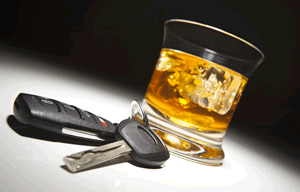Should I plead guilty of a DUI?
Recently on our legal forum a user asked, “I have recently been arrested and charged for driving under the influence (DUI). I hate to admit it, but I was intoxicated. In fact, when the police administered the chemical test my blood alcohol concentration was well above the legal limit at 0.09%. What good does it do to plead not guilty when the state has so much evidence against me?”
DUI overview
Driving under the influence (DUI) is a serious charge. In fact, over the last 30 years, lobbyists and other lawmakers have worked tirelessly to ensure drivers who are convicted of DUI will face severe penalties.
You didn’t say whether this is your first DUI, but even if it’s your first arrest, a conviction for a first-time DUI can lead to high fines, a license suspension, forced installation of an ignition interlock device, and in some cases, jail time.
When should you plead guilty for DUI?
Although most DUI lawyers say that it’s always a good idea to at least have a free consultation with a lawyer, realistically, however, there may be times when it may be a good idea to simply plead guilty and save the time and aggravation of trying to fight a DUI charge. Let’s take a closer look at some factors to consider before making that decision.
What are the chances that you will be convicted of DUI?
The most important consideration before deciding whether to plead guilty to DUI is to determine the chance that you will be convicted. Conviction, however, generally comes down to the amount of evidence the state has that you were intoxicated. If the state has the following evidence it might be tough to win a DUI case.
- High BAC reading
One of the most critical pieces of DUI evidence is a chemical test reading. Although some attorneys may successfully argue instruments are not correctly calibrated or successfully use the rising BAC defense, assuming the test is accurate, a high BAC reading can be all that is needed for a conviction.
For example, if you perform a chemical test and your BAC is 0.06% if the state lacks other evidence of intoxication you may have a good chance to win your case. What if your BAC was .20%? With a BAC reading of twice the legal limit the state will not need any other evidence of intoxication. With this in mind, assuming the reading is valid and legal, there is almost a 100% chance that you will be convicted of DUI.
- Chemical test reading and other irrefutable evidence
Although a chemical test can be the best indication you are intoxicated, it is possible to have enough other evidence that you can be convicted of DUI with or without a chemical test. For example, DUI convictions can also be common with a failed sobriety test, witness testimony, and police testimony. In other cases, defendants themselves offer enough information at the time of arrest that a conviction is likely.
Benefit of pleading guilty to DUI
Even if you do decide to plead guilty to a DUI some defendants will want to talk to a DUI lawyer. In some cases, a DUI lawyer may be able to negotiate some type of plea agreement or reduction in sentencing that may make the costs of hiring them worthwhile.
In other cases, however, penalties are set by statute and the court may have no leeway in sentencing. In this case, a DUI lawyer may not be able to negotiate any type of deal.
When should I never plead guilty to DUI?
With the exceptions outlined above, it is generally best not to plead guilty to DUI. In fact, it’s important to fight DUI charges if any of the reasons below apply to your case.
- The police did not have a probable cause to make a traffic stop.
- The police did not follow proper procedure for the chemical test or the field sobriety test.
- You did not have actual physical control of the car at the time of the DUI arrest.
- The police waited more than an hour from the time of the DUI arrest and administering the chemical test and your BAC was barely over the legal limit.
- You have witness testimony that you did not drink prior to the DUI stop.
- This is your second or third DUI arrest.
Related Pages
Previous Question
Out of state DUI keeping me from driving in home state. Help!Next Question
Should I submit to a chemical test after a DUI arrest?Latest Question
Will my daughter inherit my debts when I pass?
Prior to the distribution of your assets and income, the courts will pay your debts.
Category: bankruptcy


